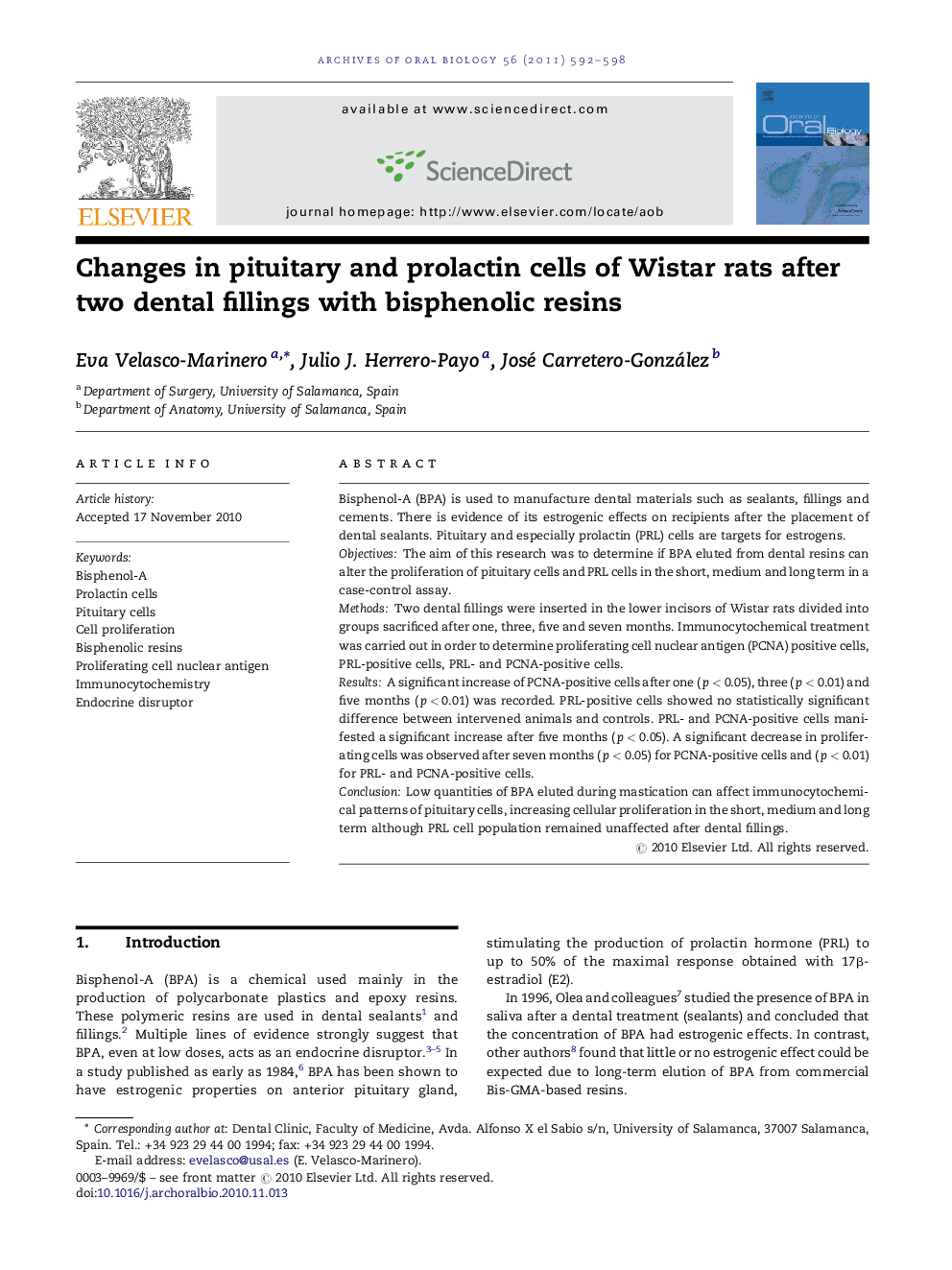| Article ID | Journal | Published Year | Pages | File Type |
|---|---|---|---|---|
| 6052069 | Archives of Oral Biology | 2011 | 7 Pages |
Bisphenol-A (BPA) is used to manufacture dental materials such as sealants, fillings and cements. There is evidence of its estrogenic effects on recipients after the placement of dental sealants. Pituitary and especially prolactin (PRL) cells are targets for estrogens.ObjectivesThe aim of this research was to determine if BPA eluted from dental resins can alter the proliferation of pituitary cells and PRL cells in the short, medium and long term in a case-control assay.MethodsTwo dental fillings were inserted in the lower incisors of Wistar rats divided into groups sacrificed after one, three, five and seven months. Immunocytochemical treatment was carried out in order to determine proliferating cell nuclear antigen (PCNA) positive cells, PRL-positive cells, PRL- and PCNA-positive cells.ResultsA significant increase of PCNA-positive cells after one (p < 0.05), three (p < 0.01) and five months (p < 0.01) was recorded. PRL-positive cells showed no statistically significant difference between intervened animals and controls. PRL- and PCNA-positive cells manifested a significant increase after five months (p < 0.05). A significant decrease in proliferating cells was observed after seven months (p < 0.05) for PCNA-positive cells and (p < 0.01) for PRL- and PCNA-positive cells.ConclusionLow quantities of BPA eluted during mastication can affect immunocytochemical patterns of pituitary cells, increasing cellular proliferation in the short, medium and long term although PRL cell population remained unaffected after dental fillings.
